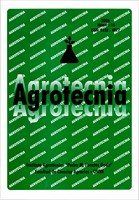Las raíces agroecológicas de la provincia del Chaco
DOI:
https://doi.org/10.30972/agr.0336902Palabras clave:
Provincia del Chaco, Agroecología, Pueblos originarios, Agricultores familiaresResumen
La región chaqueña, previamente a la llegada de los europeos, era un territorio donde sus habitantes conformaban una eco-antropo-organización, siendo parte indisoluble de la naturaleza que los rodeaba. Esta comunión ser humano-naturaleza, comenzó a destruirse con la llegada de los primeros europeos en el siglo XVI, agudizándose esta destrucción a partir de fines del siglo XIX y principios del XX, cuando comenzaron a incrementarse las prácticas de deforestación primero y agricultura luego; ya en esos primeros tiempos, se alzaban voces que alertaban que el camino que se iniciaba no iba a traer consecuencias favorables para la región y sus habitantes. El objetivo del presente artículo es rescatar esas voces y mostrar que en la provincia del Chaco las prácticas sustentables o agroecológicas no son nuevas, sino que hunden sus raíces en la historia territorial, rescatando nombres, alertas, acciones que se desarrollaron desde ámbitos académicos, sociopolíticos y productivos en pos de producir amigablemente con la naturaleza. Para ello se realizó un relevamiento bibliográfico y testimonial de actores del territorio chaqueño. El accionar de personas e instituciones que vienen desarrollando procesos de producción agroecológicos, resalta que esta es una región donde se está disputando fuertemente con el modelo hegemónico del agronegocio. Hoy en día existe un movimiento agroecológico que es continuador de aquellas voces que se alzaron en su momento, cuando aún no sabían que eso que estaban proponiendo se llamaría luego agroecología.



